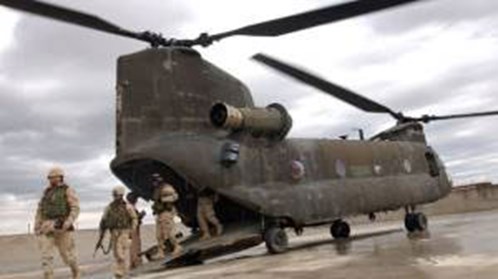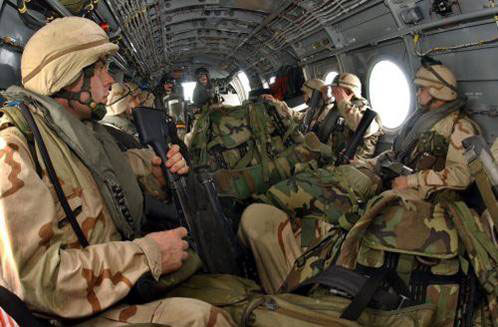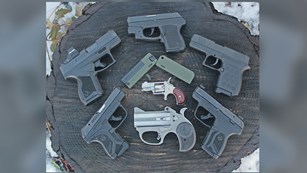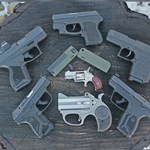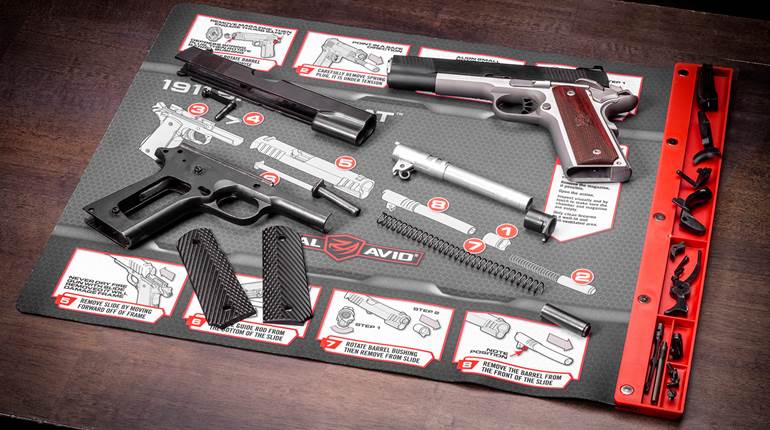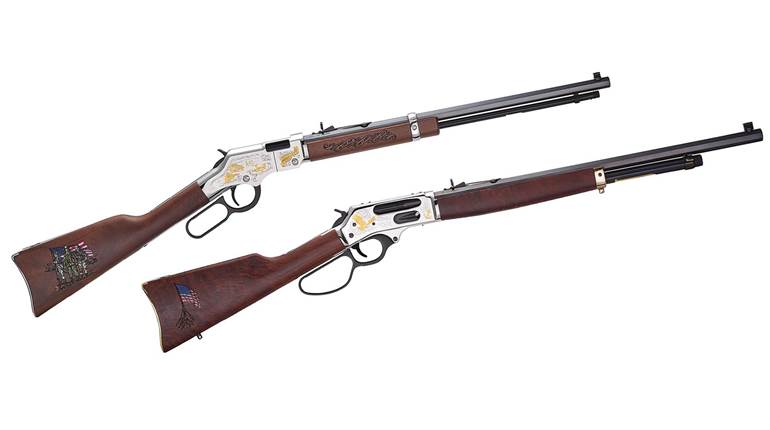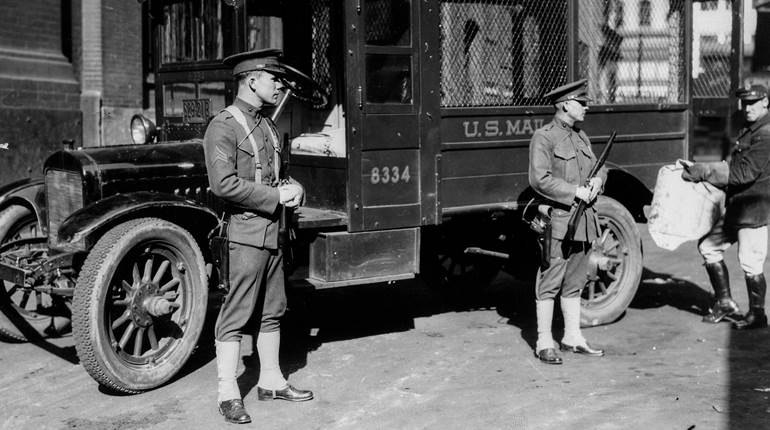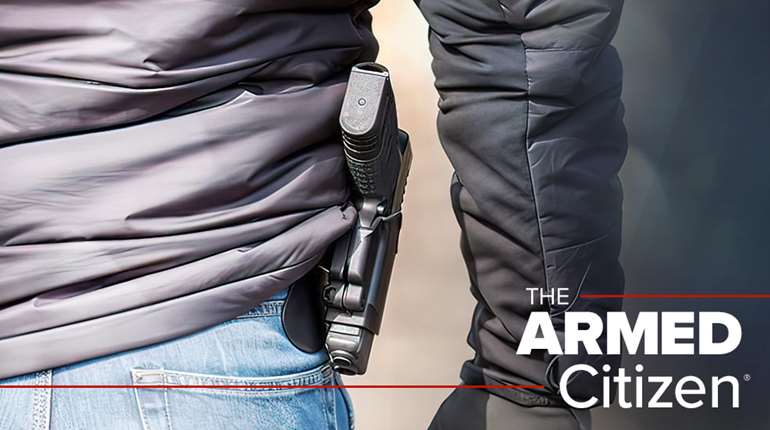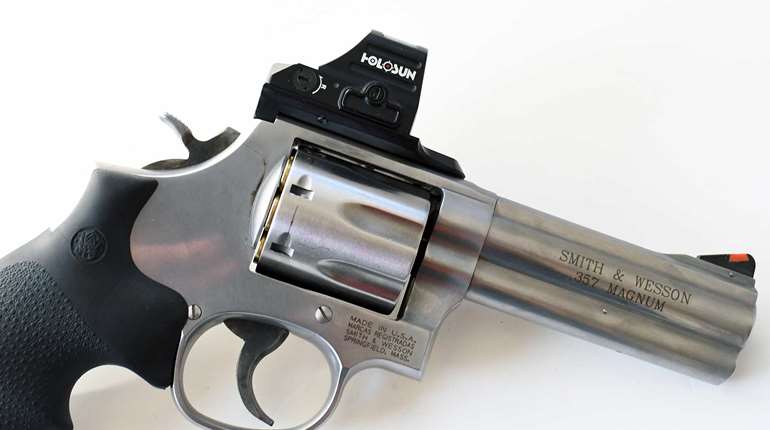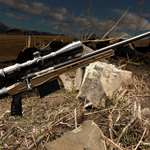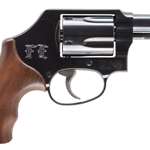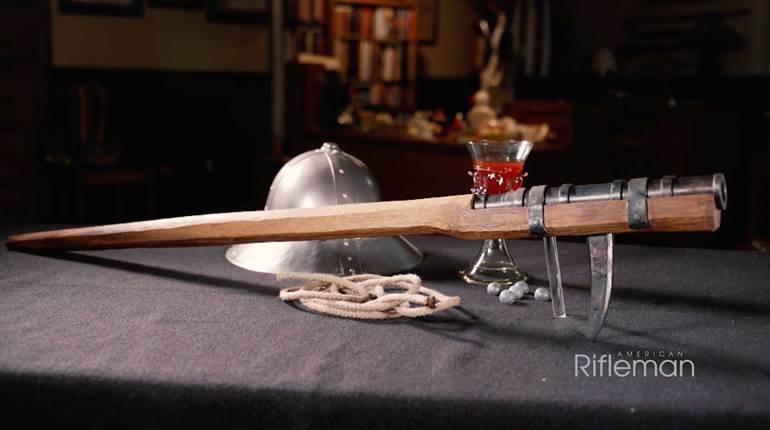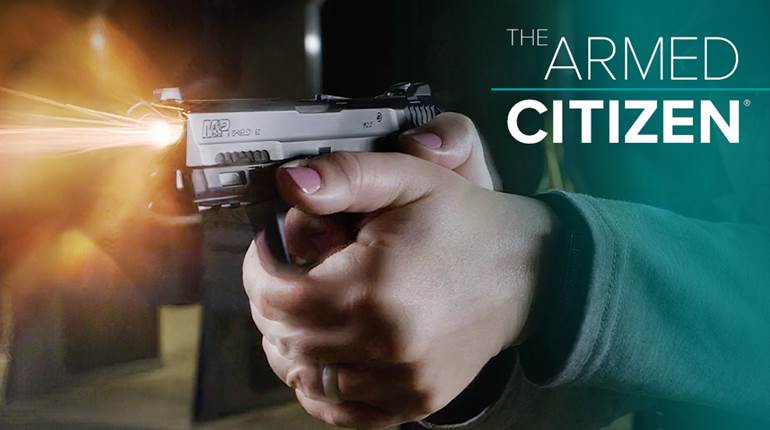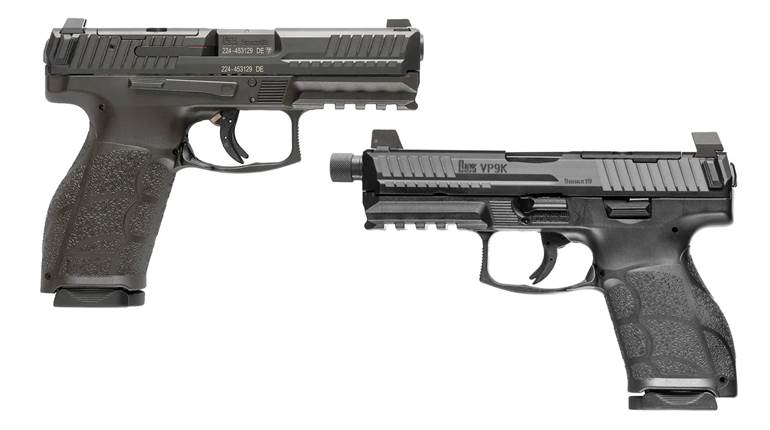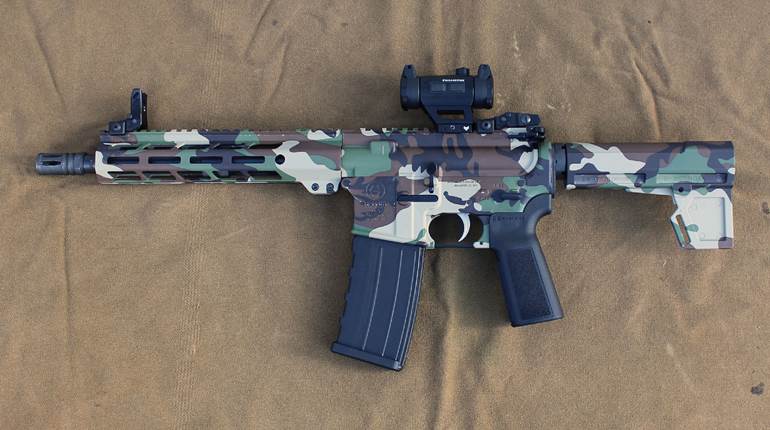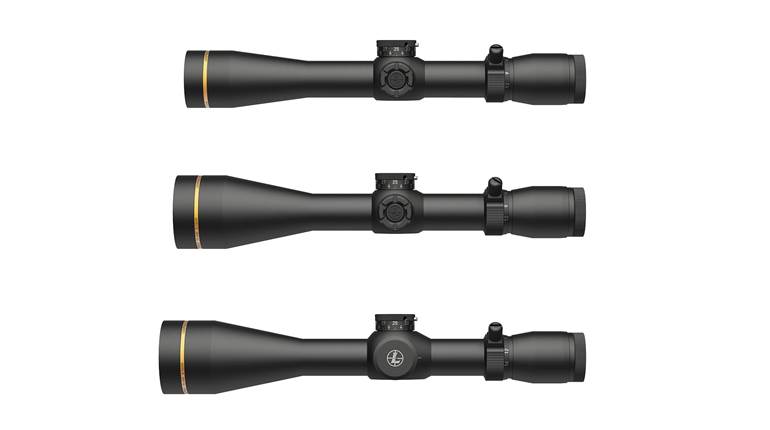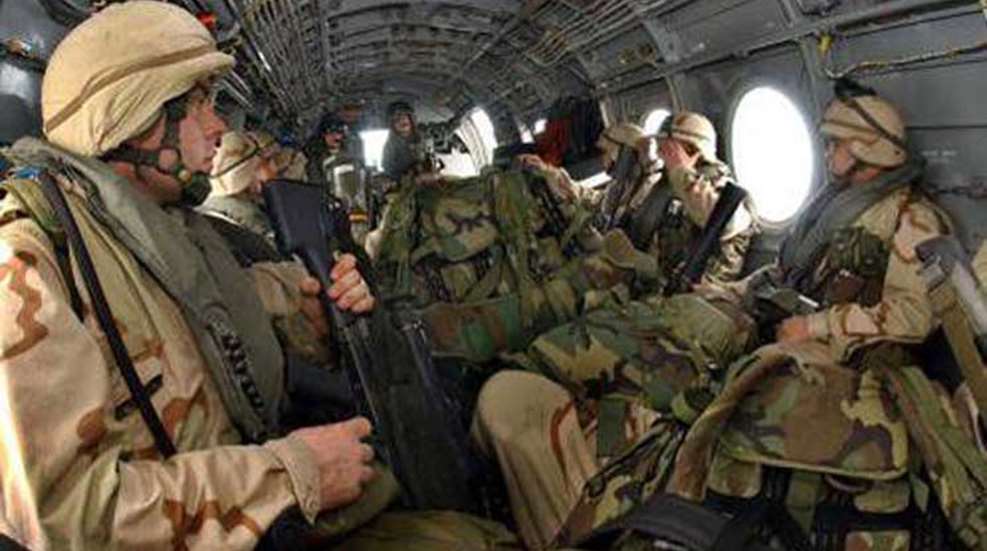
In this photo essay, NRA Publications Deputy Executive Director Chip Lohman takes us back to the era in which he was accepted into the USMC Officer Candidate Program while attending the University of Kansas. After graduating, he served for 21 years in all three Infantry Divisions and various desk jobs, retiring in 1994 as a Lieutenant Colonel.
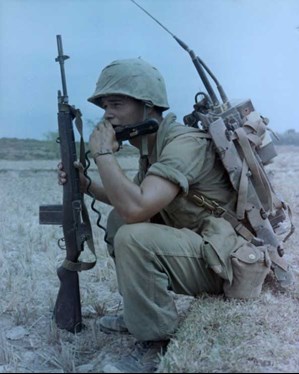
M14
In 1970 we were issued M14s. We bought a cable lock and kept the rifles in our wall lockers until we transferred out. By the mid-70s, we began keeping rifles in the armory.
M16A1 On one of my first platoon training exercises in 1975, the Platoon Sergeant ran up to me yelling that one of the Marines had lost his M16 while crossing the stream. We sent a squad 100 yards downstream to form a human net. The M16 was so light, they caught it tumbling down the stream a few minutes later.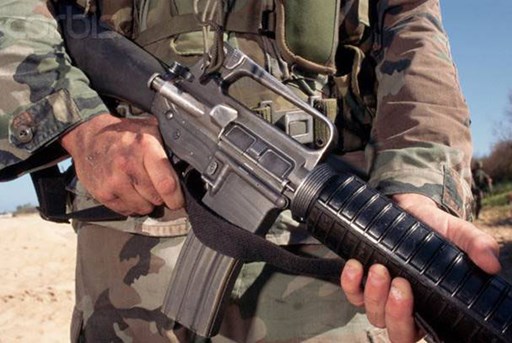
M79 and later M203 Grenade Launcher 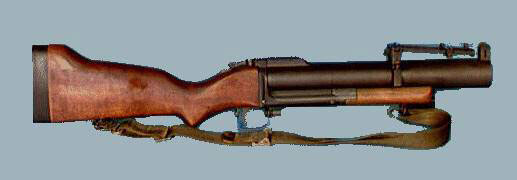
Experienced grenadiers would mark the sling with lines for standard distances out to 350 yards. By placing the buttstock on the ground and stepping on the appropriate sling mark, first-round accuracy was pretty good.
M79 Grenade Launcher: 1961 – Present
Single-shot, shoulder-fired, break-action grenade launcher. 40 mm ammo included explosive, anti-personnel, smoke, buckshot, flechette and illumination rounds.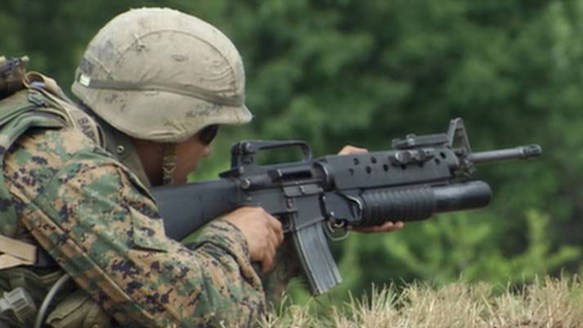
Haversack
The haversack was the size of a brief case, so we learned how to pack tight. One could pack four C-ration meals (cans) into either socks hung outboard or inside one’s shelter half (half a tent). 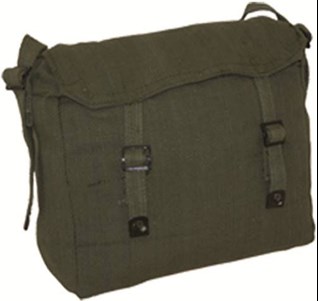
ALICE Frame System (All-purpose Lightweight Individual Carrying Equipment)
The reserve units started showing up with these around 1980 and the regular forces got them soon after. Heck, you could pack enough for an entire deployment in these! 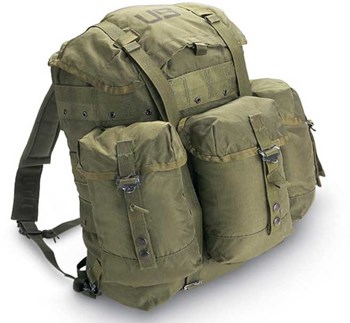
M40 106 mm Recoilless Rifle with Coaxially Mounted 50-cal Spotter Rifle 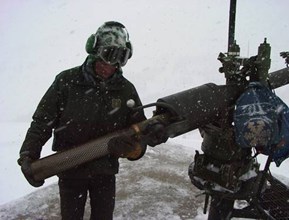
Mid 1950s – present. This was our tank killer of the day. I remember the training NCOIC warned, "If you want us to send your little crispy critter body back home to mama, just stand behind it when the lanyard is pulled.” Ammo included HEAT, High Explosive Plastic-Tracer (HEP-T), canister, High Explosive Anti-Personnel, and the M368 dummy round.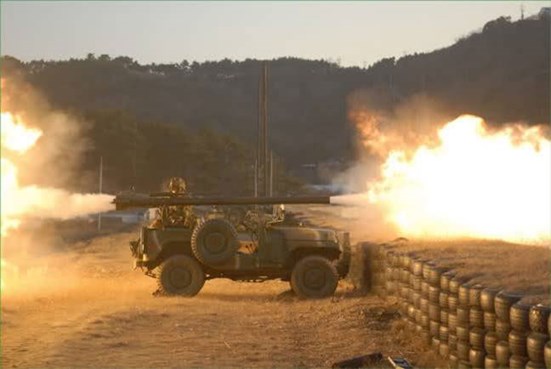
Truck, Platform, Utility 1/2 Ton, 4X4 – a.k.a. “Mule”
Each infantry platoon in 3/1 was normally issued one of these for the field, mainly for ammo, C-rations and radio-battery hauling. Introduced in 1956 and used until the 1980s. It had a 16 HP engine. With 4- wheel drive, it could go anywhere.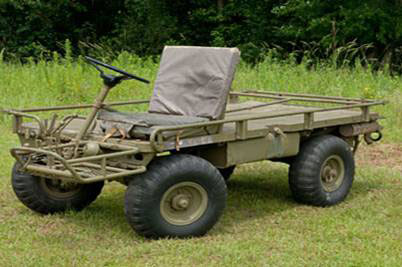
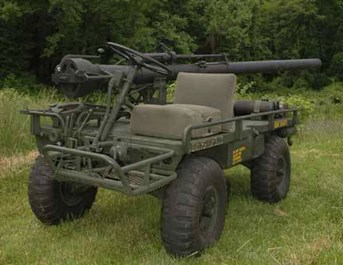
M151 Jeep
As a Platoon Commander, I rarely got to ride in one. As an H&S and later Infantry Company Commander, it was my command and control vehicle that we could outfit with both HF and VHF (Air Support) radios.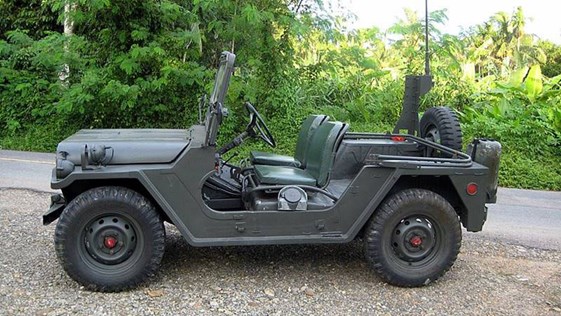
The Truck, Utility, 1/4-Ton, 4×4, M151 (M151) was produced from 1959 through 1982 and served in the Vietnam War. It was replaced by the larger AM General HMMWV which we were able to configure as a complete, mobile command post with four radios and three to five Marines.
CH-47 Helicopter
You could fit an infantry squad, an M151 jeep, or two Mules in this old work horse, fondly referred to as 50,000 loose parts flying in close formation. It’s still in use today as the “white tops” that fly the president, albeit with nicer upholstery. 